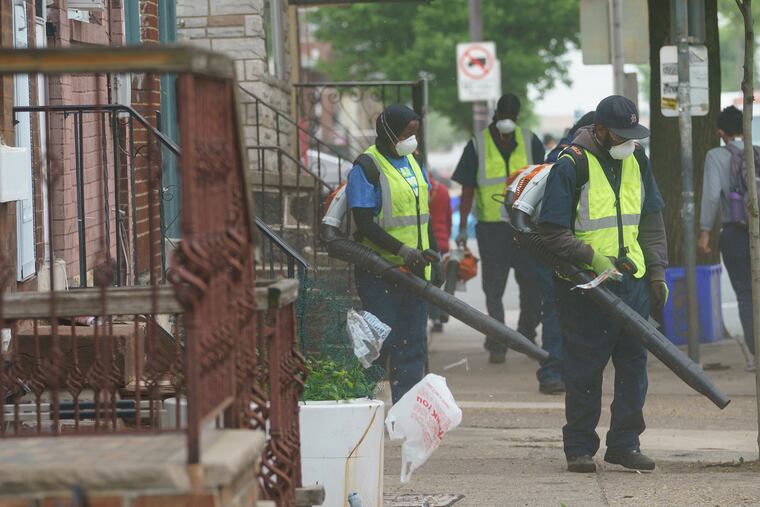Philly street sweeping program hits a road bump | Editorial
A recent report says that the much anticipated pilot program of street sweeping that the city launched in April may have encountered a glitch: the trucks are too big for many of the narrow streets in the pilot neighborhoods.

For every Gritty, for every Super Bowl win, for every crazy thing that makes Philadelphia great, there is a crazy Philadelphia thing that makes us, well, the opposite of great. A thing that makes us losers who will never deserve nice things.
When it comes to making the city nicer for everyone, we tend to double down on the not-great. Case in point: A recent report from Plan Philly/WHYY that the much-anticipated pilot program of street sweeping that the city launched in April may have encountered a glitch — the trucks are too big for many of the narrow streets in the pilot neighborhoods.
The city has spent nearly $3 million on a fleet of 10 trucks to clean six of the city’s dirtiest neighborhoods to see if sweeping and cleaning can be applied citywide.
This city has a dirty history, often singled out as one of the filthiest. Enabling this mess: Streets are unswept because people don’t want to have to move their cars from parking spots in order to allow sweeping to take place — like they do in other major cities. In its plan for cleaner streets, the city has had to do a workaround, using leaf blowers to push trash out from under cars before the trucks can sweep.
Carlton Williams, Streets commissioner, insists that the city hasn’t wasted money, that the sweeping trucks can be deployed on wider streets in the city. He also insists that this is the purpose of a pilot program — to identify any kinks or bugs before making a bigger investment.
We can only agree up to a point, because if you don’t order the rightsized trucks to accommodate a city with old, narrow streets, you’re starting a pilot program at a disadvantage. You can’t adequately test a pilot program if you don’t have the right trucks for the job.
But this is just one aspect of the city’s response to cleanup, and the finger of blame also deserves to be pointed at those responsible for our ranking on lists of “dirtiest city” or “cities with the most litter.” We’re talking about those citizens of Filthadelphia who use their neighborhood streets as trash cans and dumping grounds for tires, construction debris, and other garbage.
The finger also gets pointed at the selfish car owners who would rather live in a pigsty than get up and move their cars in the morning for sweeping.
Consider what these car owners pay for the privilege of being able to park in front of their house: $35 a year. A second vehicle in a household costs $50 a year.
We say it’s time to raise those fees to help offset the downsides that so many cars create — environmental hazards, congestion, and dirty streets. Raising the residential parking permit fee could help defray the cleaning and sweeping costs. There’s one problem: The money is collected by the Parking Authority. But surely there are ways to direct revenues from a higher fee to the Streets Department. A cleaner city shouldn’t be rocket science.